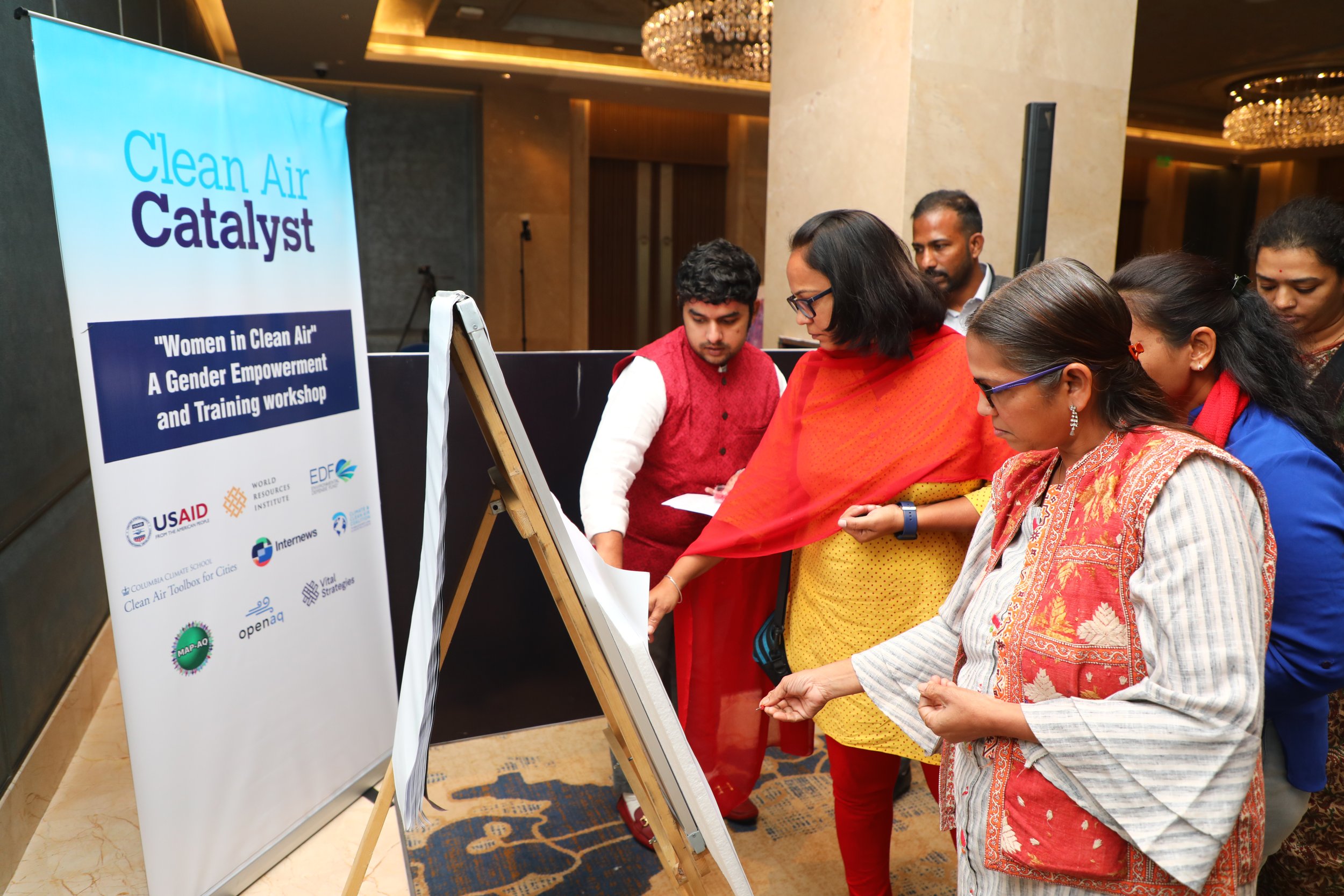Workshop Spotlights Role of Women and Girls as Clean Air Champions in Indore
By Sudhir Gore, January 11, 2024
What’s new: In December, Clean Air Catalyst’s Indore team organized a gender empowerment and training workshop titled "Women in Clean Air." The goal of the workshop was to bring together women and air quality experts from across government, civil society, and the private sector to highlight the ways that women and girls are uniquely impacted by air quality and to generate ideas for how proposed policy solutions can better combat gender disparities in air pollution exposure.
What happened at the workshop: The one-day workshop included training sessions titled "Understanding Gender and Equity in the Context of Air Pollution," "Gender Empowerment – Advocacy Skills," and "Solutions Designed for Indore." The goal of these sessions was to support and empower women and girls in Indore as change agents, decision-makers, and leaders in both traditional and non-traditional air pollution solutions. The sessions also provided an opportunity for the Catalyst and partners to engage directly with community representatives and women working in affected industries to hear their concerns and solution ideas. The training program was conducted by Megha Namdev, Engagement Lead at Clean Air Catalyst.
In addition to the core training program, several guest speakers presented. Ashwarya Rai, OMI Foundation's Center for Inclusive Mobility lead, and Anikta Kapoor, program manager at Safetypin, an organization working on women's safety in public spaces, shared their insights on safe and environmentally friendly transportation for women. And Saurabh Porwal, program manager at Vital Strategies, presented on the health impacts of air pollution and preventive measures that residents can take to reduce exposure risk.
Why it matters: The Catalyst believes that if policy solutions to air pollution are to benefit all Indore residents, they must be informed by all residents—especially those who are historically overlooked. Azra Khan, the Catalyst’s gender lead and program manager for Transport at WRI India, emphasized the significance of the workshop in helping achieve this: “It is important to understand the differentiated impacts of air pollution from a gender and equity lens and to bring this understanding into designing clean air solutions. Today’s workshop is just as much a learning opportunity for us as it is for participants.”
Key workshop learnings: The workshop left participants with a more robust understanding of air pollution science, leading sources in Indore, and the particular exposure risks facing women and girls. It also equipped them with solutions, including actions that individuals can immediately take to reduce their exposure at work or home. For example, Ritu Narwale, a city bus driver, reflected on steps she will take to reduce her own exposure risk in her daily work: "I have learned that it is crucial for us to regularly check and maintain our vehicles so that emissions can be reduced."
Crucially, workshop learnings also included systemic policy changes that will be key to securing cleaner air for Indore residents over time. Anupa Gokhale, Program Director of local health organization, Pahal Jan Sahyog Vikas Sansthan, highlighted some examples: "There is a need to conduct awareness programs in schools, colleges, or residential areas regarding air pollution so that women can learn about the causes and ways to combat it. Making public transportation women-friendly and raising awareness about waste burning will also help."
What’s next: The Catalyst’s research in Indore has identified transportation, waste burning, and industrial pollution as the top sources of air pollution in the city. The insights and learnings gathered from the workshop will help shape which solutions the Catalyst and its partners pursue for each source and how they are implemented moving forward. Project lead, Kaushik Raj Hazarika, emphasized this: “We plan to use the insights and learnings from today’s workshop as we build a clean air coalition to implement pollution mitigation measures together.”



